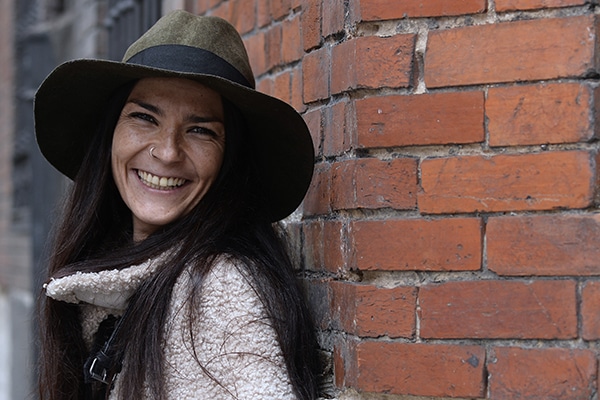
10/22/2019.- Cristina Ortega Blanco has presented this Tuesday 22 October her second documentary feature film, La loba parda, which participates in the section DOC. Spain of this 64 Seminci and tells the story of survival of the last nomad shepherds in the highlands of Soria through the tales of her two grandparents as main the pillars of tradition and memories.
The documentary, on which Ortega Blanco has worked for eight years and the result of which she claims in an «anecdote» compared to all the material that she has, was born from a previous medium-length film by the filmmaker –La música de los rebaños– which tells the story of the relationship between shepherds and sheep through onomatopoeias and bells, an element which is also very present in this film.
Through a migration of images, La loba parda not only tells the story of the Pérez brothers, but by using fixed shorts it goes far beyond the simple act of herding. In the director’s words «it’s a drift, a path, a cinematographic search through the forgotten».
The title La loba parda comes from an anonymous Castilian romance from the 14th century, which the director’s grandfather recites at the start of the feature film and which «intends to provoke the feeling of being around the bonfire and the oral tradition», as the filmmaker has confirmed during the conversations after the screening.
During the whole feature film, Ortega Blanco uses several resources in order to reflect through the cinematography on the way in which all those people who live in the countryside feel. The filmmaker has explained that «there is a metaphor between the fog and the path, which refers to loss and the feeling of abandonment that we rural people have».
The background of this film is the depopulation of rural areas and how their inhabitants are forgotten. «This is something that I have been seeing since I was a child and it has been happening since the 60s. The problem is that the solution is given from the cities, although it should be managed between the people in the town in order to carry our land forwards» the director believes regarding this problem.



























![Logo Foro Cultural de Austria Madrid[1]](https://www.seminci.com/wp-content/uploads/2024/09/Logo-Foro-Cultural-de-Austria-Madrid1-300x76.jpg)








